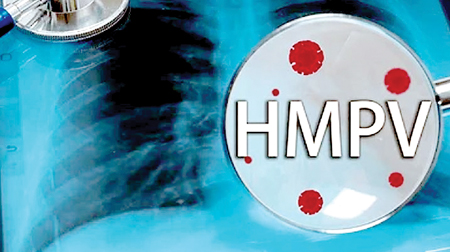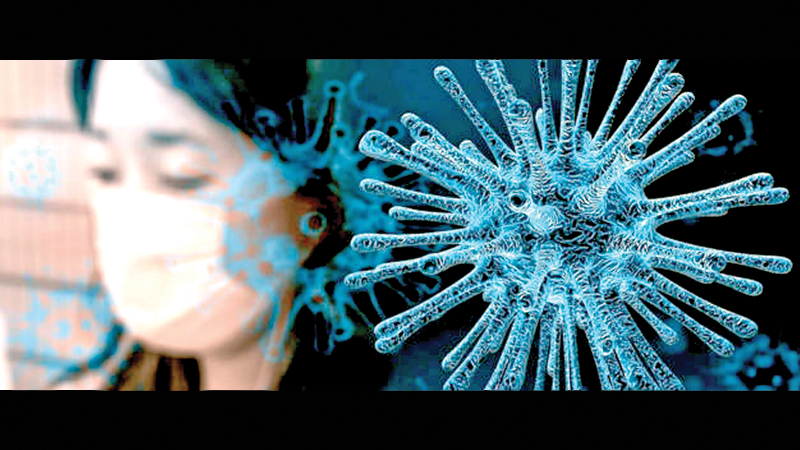Human metapneumovirus (hMPV) is one of the viruses that causes the common cold (upper respiratory infection). It usually makes people only mildly sick, but it can make some people very sick.
The virus belongs to the Pneumoviridae family of viruses, along with respiratory syncytial virus (RSV). It was first identified in 2001 and has been spreading among people for many decades. It is found around the world.
It spreads like other common cold viruses do, through infectious respiratory particles that spread through the air from a sick person to others. This means a person can catch the virus when they are close to a sick person or sharing a closed space with them. It can also enter the body by touching contaminated surfaces like doorknobs or handles and then touching the eyes, nose or mouth.
Generally, people infected with hMPV will have cold or flu-like symptoms:
- cough
- fever
- sore throat
- runny or stuffy nose
- body ache
- headache.
It can make a few people quite sick, causing infection of the lung (pneumonia) or inflammation of the airways to the lungs (bronchiolitis, bronchitis). Symptoms of more severe disease include wheezing, difficulty breathing, chest pain, dizziness, severe fatigue, dehydration, or a persistent fever that does not improve. If someone is experiencing any of these severe symptoms, they should seek medical advice.
Who is at risk
Human metapneumovirus is a common cause of upper respiratory infections among infants and children under 5 years old.
While anyone can catch hMPV, infants, older adults, and those with health conditions like immunosuppression, chronic obstructive pulmonary disease (COPD) and asthma are at higher risk for severe illness. Extra care should be taken to protect at-risk groups and health care workers from any respiratory infections.
Test to diagnose hMPV infection
 A polymerase chain reaction (PCR) test is the most reliable way to diagnose hMPV, giving accurate results within a few hours.
A polymerase chain reaction (PCR) test is the most reliable way to diagnose hMPV, giving accurate results within a few hours.
However, doctors may not suggest this test for people with cold or flu-like symptoms as there is no specific treatment for hMPV infection and in most cases, it causes mild disease.
Difference between Covid-19, flu, RSV and hMPV infections
It is hard to tell different respiratory illnesses apart as they have similar symptoms such as fever, cough, runny nose and congestion. However, the treatment can differ, especially for people who are or can become very sick. Covid-19 and Influenza have specific antiviral treatment options. Doctors may use diagnostic tests to identify the cause before deciding on the treatment.
Treatment
As hMPV is a cold virus, people can treat their symptoms with over-the-counter medicines to treat pain, fever, stuffy nose and cough.
Getting plenty of rest and staying hydrated also helps.
Currently, there is no approved antiviral medicine for hMPV. Most people feel better in a few days. If symptoms get worse, they should contact their health care provider. Those who are at higher risk should also consult their doctor, even if their symptoms are not too bad.
In a small number of cases, when people need to be hospitalised, doctors may give them extra oxygen to help them recover.
Human metapneumovirus usually causes cold or flu-like symptoms. However, how sick a person gets depends on many things, including their overall health. Also, since viruses can evolve, their severity may change. WHO works with global experts to monitor these changes. -WHO
****
How is hMPV infection prevented? Is there a vaccine?
Preventing hMPV infection is similar to preventing other respiratory illnesses with actions such as:
* wearing a mask in crowded or poorly ventilated spaces
* improving ventilation where possible (such as by opening a window for air flow)
* cleaning hands regularly and thoroughly, with either soap and water or an alcohol-based hand rub
* avoiding touching eyes, nose or mouth without cleaning hands first.
Having a strong immune system can also help fend off infections. Eating a balanced diet, exercising regularly, and sleeping properly help with that.
When someone is sick, they can avoid making others sick by
* staying at home if they feel ill
* covering nose and mouth with a tissue or bent elbow when coughing or sneezing
* wearing a mask when around other people
* improving ventilation, especially in shared spaces
* regularly cleaning hands and disinfecting frequently touched surfaces.
There is currently no vaccine licensed for use against hMPV, but research is ongoing.




